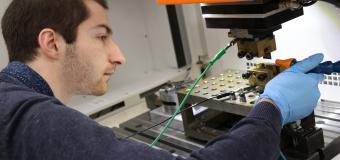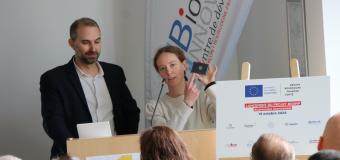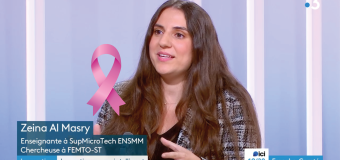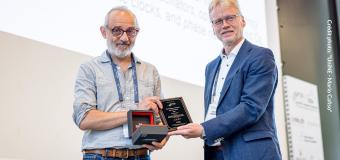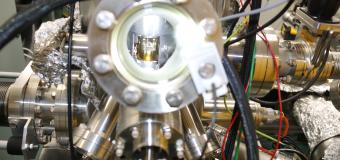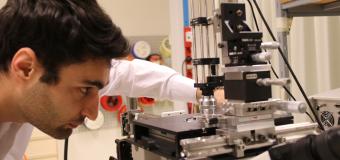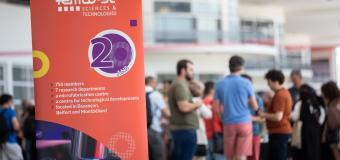Tribute to our colleague Sarah Benchabane
The CNRS and the university community of Bourgogne Franche-Comté are in mourning following the death of Sarah Benchabane, Director of Research at the CNRS and internationally renowned researcher in phononics, affiliated to the FEMTO-ST laboratory.
Sarah Benchabane has died after battling a long illness. Highly appreciated by her colleagues for her professionalism and dedication to the scientific community, she leaves behind a huge human and scientific void.
A world pioneer in the field of phononics, Sarah Benchabane began her career at the CNRS in 2008, where she brilliantly studied the coupling between acoustic and optical waves. In 2012, she was awarded the CNRS bronze medal in recognition of her work. She subsequently focused her research on the study of acoustic waves at the quantum level. In 2019, she was awarded a prestigious European funding (ERC Consolidator Grant) to explore non-linear quantum phononics.
Sarah Benchabane was both a talented theorist and an expert in experimentation and technology. She trained and inspired many students and researchers, both locally and internationally, guiding them with passion and determination. Her involvement in research also extended to her active role on various evaluation committees, such as those of the French National Research Agency, the CNRS and the European Commission.
More than an accomplished scientist, Sarah Benchabane was a colleague of great humanity. Always ready to give of her time and to listen, she generously supported those who were going through difficulties, whether personal or professional. She helped many colleagues to progress in their careers by sharing her sound advice and experience.
Outside of science, Sarah Benchabane was a true lover of culture and the arts. A great lover of music, from electro to metal, and an avid reader, she was a living encyclopaedia for all those who shared these passions with her.
Her colleagues extend their most sincere condolences to her family, in particular her husband Olivier and her son Haron, as well as to her close friends. We have lost not only an exceptional researcher, but also a dear friend, whose loss affects us deeply.



